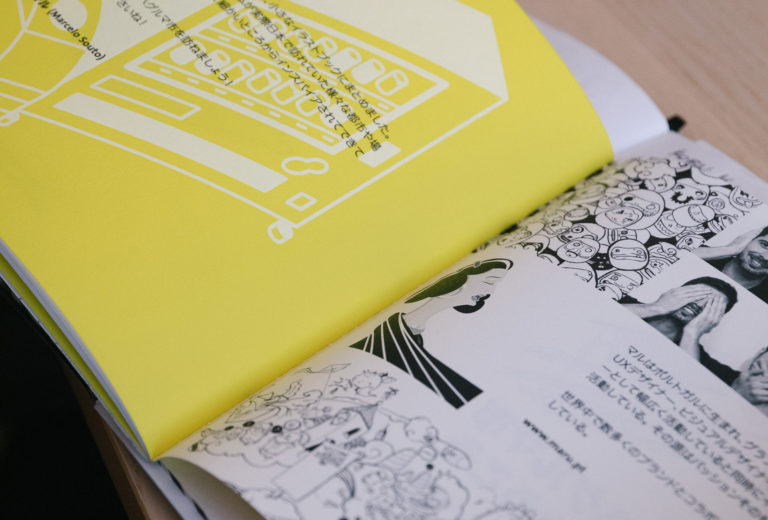It’s about time: work, meaning and society.

Kobu’s DNA as a creative agency has never been contained within typical boundaries. The team often spends hours discussing a broad mix of abstract topics that have apparently nothing to do with our work but which ring the inner bells of all of us. The heterogeneity between the people that make up Kobu’s soul and heart is reflected in the vision that each one has about some essential subjects. This set of individual paths (and some of them are really peculiar!) brings an additional richness to the whole – Gestalt! – which speaks in unison when it comes to looking for meaning in things. This is what leads us, more and more, to seek to invest our time intentionally, in the search for value and personal and collective growth. In fact, the relation between the time issue and intellectual (de)growth, mainly when applied to the brands’ universe, is one of our dearest topics.
Deadline: the master and commander
In the work context, the optimised use of the time factor is something that relates a lot to the management of deadlines. The concept of a deadline is fundamental – from a psychological point of view, deadlines create the conditions for enhanced focus and maximum concentration. Nevertheless, we must consider that people don’t function all the same. For some, having a deadline, be it short or not, is a cause for stress, and it often conditions even the creative process itself – the person feels constrained inside an imaginary box. For other people, working under the pressure of a deadline turns out to be a stimulus to creativity, which will impact on the quality of work and productivity – the person works faster and sometimes enthusiastically knowing that time is limited. Problems arise when the incentives that exist around us are not the right ones, and most of the times the deadline ends up being more of an excuse to have things poorly done under pressure, than as a powerful mobile to develop focused and quality work.
Although there are goals to be achieved within the business world, we must ask ourselves what kind of problems can we solve when time assigned to develop projects is invariably too short. This kind of pressure has a significant repercussion on the type of work we create. Inevitably, the work we produce in such a short space of time is not one that actually brings value – it’s mere execution work. On the contrary, when we devote time to work on a single task or resolve a single problem, we create space to act, and not just react, on the situation. This may turn out to be a fundamental tool to understand that yesterday’s solution doesn’t mean we’ll be successful today.
Each and every project should consider an exploratory time-span to test different solution versions, or to think more deeply about its characteristics. Similar to optimisation problems in engineering processes, we are seeking the best solution to answer a given problem. If we have little time to do it, we may be stuck with a local minimum, which is a solution that may even respond to what you want, but which is far from a global solution, i. e., the solution that responds to the problem optimally for the overall system. This may handicap the outcome of creative projects, and that’s why there must be some flexibility when negotiating deadlines.
Experience shows us that sometimes, to achieve best results, projects need to pivot in a different direction from the one initially thought. This may imply not meeting the deadline, which can be costly in the immediate future, but what must be considered is the long-term compensation. Deciding on skid deadlines is often a matter of accepting risk, but it is also a matter of planning and managing expectations.
Looking at creative teams, we can identify behavioural patterns associated with very short project execution deadlines. Fatigue and demotivation immediately stand out as the creative potential is neutered and results in a more unsatisfactory outcome. Too tight deadlines mean all parties lose value. The project owner ends up with one result that may respond but will surely fall short. The creative team lives a scenario of growing frustration because their work doesn’t bring any kind of personal fulfilment or meaning.
The unsuccessful search for meaning
One of the biggest challenges is finding a perfect alignment in which, simultaneously, the work is profitable and also fulfilling – we know that only very few times this match happens. Although our mindset should always be about seeking and giving meaning to each and every project, the truth is that we live constrained within a paradigm of eternal growth. The system around us encourages us to develop mostly shallow work. From a societal point of view, this is hugely destructive because it hinders our intellectual availability from perceiving value at all. We end up consuming a large volume of little value content because the system is set up for immediate consumption and this, little by little and over time, seems to shut down the human capacity to question itself.
In today’s culture, there is a total denial of empty moments or inner silence and, above all, moments of boredom. The digital drive feeds the constant need to receive different stimuli, but, contradictorily, there is the notion that we have less and less time in our lives to do essential things.
Nowadays, we are victims of immediacy and urgency, which result from the current paradigm. The technology was meant to serve us, but it ended up surpassing us and dictating the rules of our own behaviour. The ease of access to information takes precision away from us. Technological evolution is faster than the speed at which we can adapt our behaviour and, therefore, we end up running after it. Also, the present economic model in which annual growth is imperative adds to a recipe for an unbalanced and asymmetric reality that does not serve us intellectually.
In his book “Deep Work”, Cal Newport awakens us to the need to rethink the current paradigm. How can we do a mindset shift to develop more meaningful and more valuable work? The so-called knowledge work must prevail over mere skilled labour. There should be more significant investment in thoughtful, reasoned content that promotes intellectual growth through the generation of knowledge and added value. In the short term, this investment can be extremely costly from a business point of view. However, it is an investment that must be regarded in the long run, because it will essentially impact on a structural level and in the future outcome of our work. Its value will be revealed in disruptive situations of context change. It will enhance organisations’ plasticity and their ability to adapt to new contexts. Companies must create internal conditions that aim for the development of plasticity and flexibility to adapt to change. This can impact tremendously in their organic resilience, economic robustness and long term sustainability.
Stop and think: are the premises right?
The question then remains: is it worth going against the grain if the individual investment is so exhausting, so costly and, most of the times, so lonely? For us, it’s the only way to go because it’s the only one that makes sense. Consider the following example: there is a current belief in a metric that states that, for a video campaign to be effective, the user’s attention has to be captured in the first 5 seconds of it. This belief is common practice within the digital marketing world. But the truth is that the rationale for this argument is very questionable considering that, in terms of human evolution, it took us about twenty years of our lives to build the neuronal connections in our brain to make sense of the world. This 5-second metric creates a utopian illusion that, if fulfilled, a company’s sales will improve, as if exercising some kind of hypnotic power over people. In fact, this urgency feeds both the needs of companies, on which business objectives are imminent, as well as the interests of social media companies, which live by managing users’ attention. Furthermore, regarding the widespread belief that our attention span has been decreasing over time, being today inferior to that of a “goldfish”, there is not, to the best of our knowledge, reliable scientific knowledge that corroborates this type of statement, on the contrary. It is certainly known that the human being has some difficulty in maintaining very long periods of concentration – read, above half an hour to an hour – but not on the order of magnitude.
Indeed, Cal Newport argues that the more the human brain is trained to do focused work over long periods of time, the greater resilience it gains. It operates a restructuring of the way it organises information and results in resilience gains as concentration overtime occurs. This phenomenon has a tremendous impact on the individual’s satisfaction and work quality. Thus, a big question is raised around these findings: why isn’t there more investment in knowledge work? It will always take more time and be more costly, but it will generate more value and more meaning both for those who produce it as for those who consume it. And isn’t there an ethical-moral imperative to do so? What role should companies play? Especially creative agencies and those involved in content production.
It is imperative to encourage reflection on these topics and to take CEOs, marketing directors, creative directors and others involved in the content production industry to rethink their contribution to the paradigm. They, who write long articles with appreciation and criticism of books on digital minimalism, on the importance of time management and other related topics, must be aware that they are also decision-makers, they too shape the course of events. It must be said and repeated that we do not have to go on producing content for goldfish because there is actually an extensive group of people consuming long-form content. Companies and brands must take some responsibility in addressing these issues as there must be other ways of being in business and alternative modes of creating and managing brands. In the long run, this will have a substantial impact on the way our society is organised.
Mind-growing content: for a richer future
2020 is the year when everything happens, and the world is in an uproar. We realise that companies and brands do have space to play a more active role in building society. And they should use it. Large companies, and especially those linked to the media, have a much greater reach than States themselves. We find that the number of people who give them their attention is greater than the number of people who vote, for example, which can easily be seen in the decreasing number of people who attend elections all over the world. This reality should create a notion of social responsibility for these companies that is a little different from what currently exists. Rather than just being an item on the companies’ websites menus, social responsibility should, in practice, translate an active posture that contributes to changing the societal structure. In this way, companies can also achieve a reinforced position in the market, more specifically in the post-conversion phase of their marketing funnels, working seriously to retain the target audience and create loyalty. Creating more in-depth content that addresses core-value topics in a transparent and meaningful way and which are actually relevant in our society, will allow a more favourable evolution of our context.
This attitude and posture change from companies requires a certain amount of altruism. It will be necessary to rethink the 100% focus that currently falls on business and commercial objectives, to engage on creating content that aims to feed a more knowledgeable, more sensible community, with real, verified information, while sharing the tools to help everyone make sense of the world.
Creative agencies, in particular, should ask themselves what kind of content can they put forward into the world to make people think. Be it through visual activations, pieces of written content, multi-media content, actions that challenge and lead people to question themselves. We have to deconstruct some of today’s prevailing notions – diverging opinions are not mutually exclusive. There has to be room for conversation, for the exchange of ideas, for dialogue. Media and multinational companies have a significant role in reshaping social relations and in the way reality is evolving. The year 2020 has been symptomatic of the worsening of divergences. We witness that the divisions are increasingly deep and the discussions are increasingly heated. There is worrying polarisation and a generalised regression of the ability to tolerate one another. It seems that we are no longer able to put ourselves in each other’s shoes and observe different realities to try and perceive them. There is no magical recipe for these issues, but decision-makers must look for more effective solutions to bring people closer. It is always delicate to address ethical problems because they involve a series of subjective concepts. Still, there must be a common and beneficial basis for all human beings, individually and as a society.
In terms of content production, it becomes nearly impossible to develop mind-shaping work using only short-form content. Responding to commercial goals and, at the same time, trying to add value and make people question themselves is a complicated task because the two things happen at very different time scales.
Tangible business goals must be met annually while intangible value goals may require years and may not generate direct benefit to the company. These goals are neither palpable nor measurable. They represent a growth which cannot be displayed to stakeholders in annual charts. It’s important to talk about the ethical and moral issues associated with both short- and long-term content production. There is evidence over the last decade of how content which is thought through in detail, based on non-linear narratives telling complex messages, becomes intellectually stimulating and endures over time because it creates identification and leaves a trace in people’s minds.
Remarkability and charisma in brand communication must be revived.
Transparency disclaimer
Article was written by Isabel Evaristo from a transcript of Insight Booth #3: Tempus fugit.
Edited by Nuno Tenazinha
How do you feel about this article?







